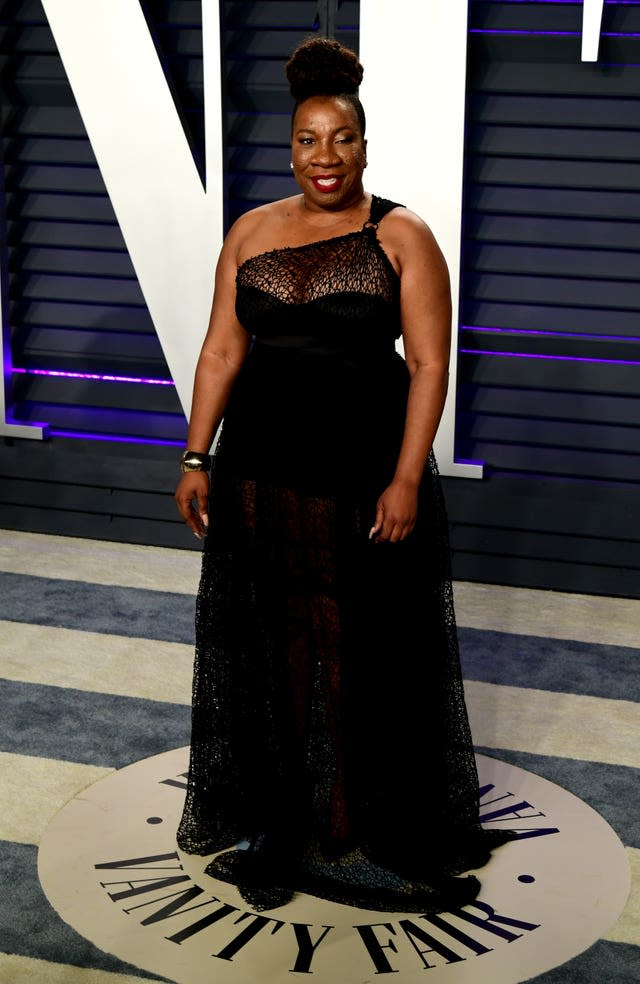Harvey Weinstein court ruling is ‘clarion call’ for MeToo movement, says founder
The founder of #MeToo, Tarana Burke, has said the decision to overturn Harvey Weinstein’s 2020 rape conviction is a “clarion call” for the movement.
The New York Court of Appeals overturned Weinstein’s 23-year sentence in a 4-3 decision as it found the trial judge unfairly allowed testimony against him based on allegations that were not part of the case.
On Thursday, American activist Burke, 50, addressed the court’s decision at a press conference and said it was “not a blow” to the #MeToo movement.

“Many people, many survivors and those who love and support survivors probably thought that that original verdict meant that there was going to be a change, that it marked a change, marked a difference in how this justice system was going to move and operate”, she said.
“And I think that we felt, and a lot of us felt, that we were on a road to seeing a different America. And this moment makes it feel like we were wrong.”
She added: “What does this mean for the MeToo movement?
“I want you to hear this. This is not a blow to the movement. It is a clarion call. And we are prepared to answer that call.”
Allegations against Weinstein, 72, the once powerful and feared studio boss behind Oscar winners such as Pulp Fiction and Shakespeare In Love, ushered in a global #MeToo movement in 2017, where women across the world shared experiences with sexual assault.
Burke set up the “global, and survivor-led, movement against sexual violence” in 2006.
Double Jeopardy star Ashley Judd, who was among the first women to make allegations on the record against Weinstein, also spoke at the conference.
She said: “This today is an act of institutional betrayal.
“And our institutions betray survivors of male sexual violence, and we need to work within and without the systems to start having what is known as ‘institutional courage’.”
Judd, 56, previously alleged she thought she was attending a breakfast hotel meeting in 1997, while filming the thriller Kiss The Girls, when Weinstein began pressuring her to give and receive massages and to watch him shower.
In a bid to get out of the bathroom, she claims she resorted to striking a deal with him that she would say “yes” to his advances when she won an Oscar for one of his films.
In 2019, the United States District Court in Los Angeles dismissed a sexual harassment claim made by Judd against Weinstein in which she said he defamed her, damaging her career.
American actress Mira Sorvino, who previously made allegations against Weinstein and won an Oscar for Mighty Aphrodite, tweeted that she was “disgusted” at the justice system and “horrified”.

British model and actress Cara Delevingne shared an article about the court ruling to her Instagram story and wrote: “This is truly heartbreaking.”
During a press conference, Weinstein’s lawyer Arthur Aidala called the Court of Appeal’s ruling “a great day for America”.
“It may sound like an exaggeration but it’s not. Today’s legal ruling is a great day for America because it instils in us the faith that there is a justice system,” he said.
A spokesperson for the Manhattan District Attorney’s Office told the PA news agency: “We will do everything in our power to retry this case, and remain steadfast in our commitment to survivors of sexual assault.”
Weinstein, will remain imprisoned because he was convicted in Los Angeles in 2022 of another rape and sentenced to 16 years in prison.
He maintains he is innocent of the charges of criminal sex acts involving forced oral sex on a TV and film production assistant in 2006 and rape in the third degree for an attack on an aspiring actress in 2013. He said any sex was consensual.
In a statement to PA, Weinstein’s spokesman Juda Engelmayer said the producer “has a long road ahead of him, and we see this as a positive sign going forward”.
He added: “We are cautiously excited for the decision, and believe it is a long time overdue.”


